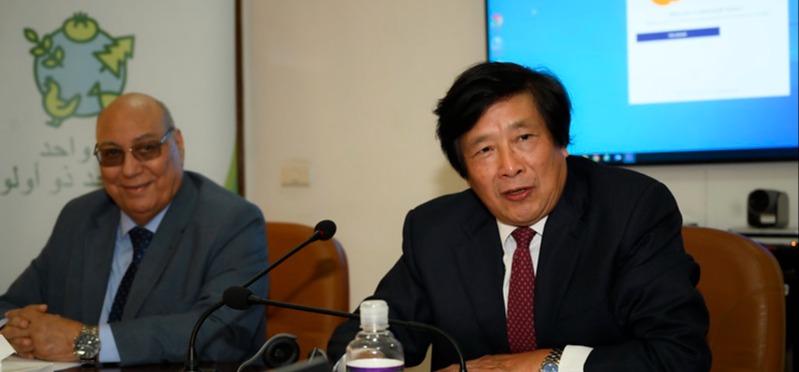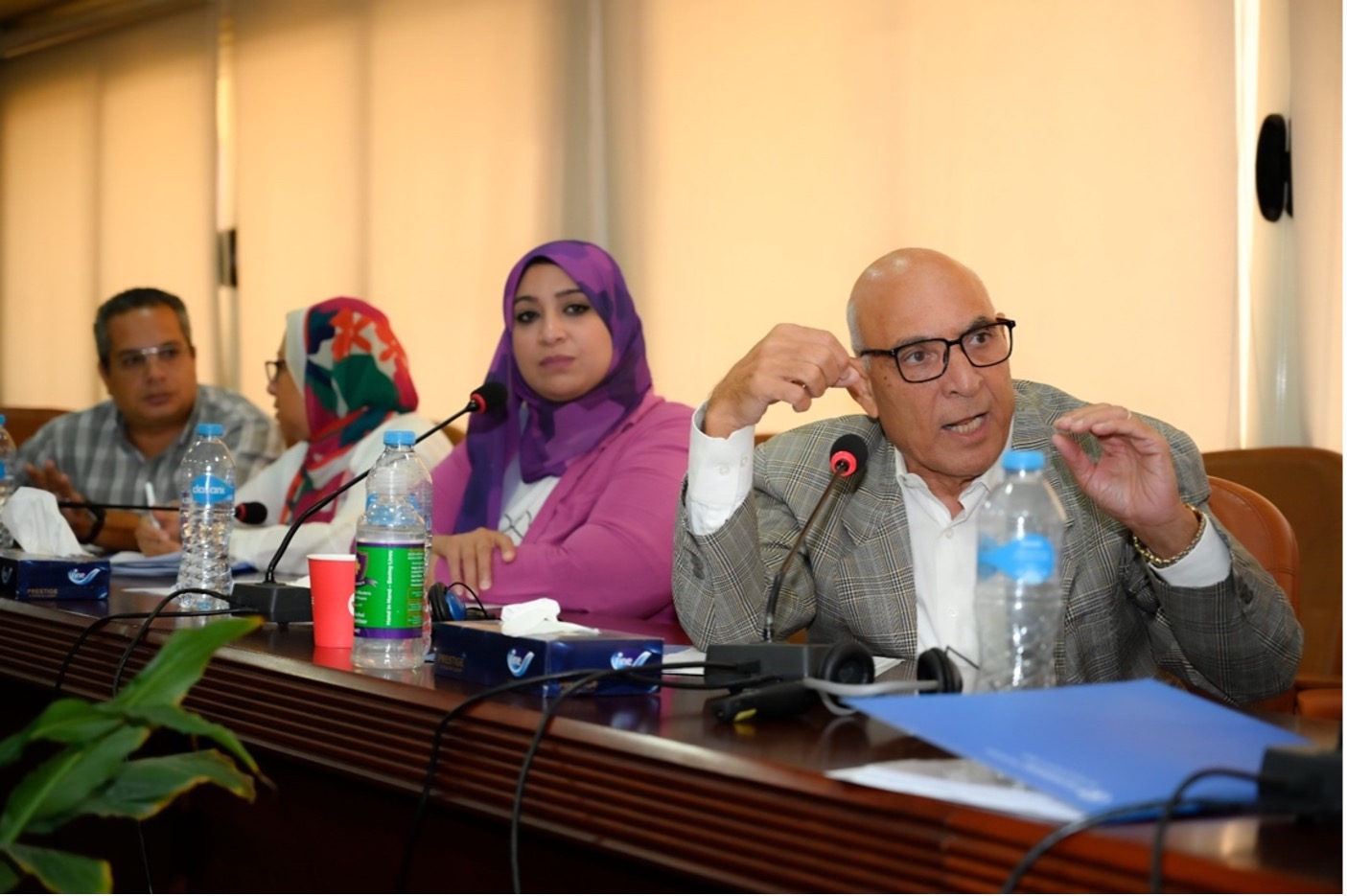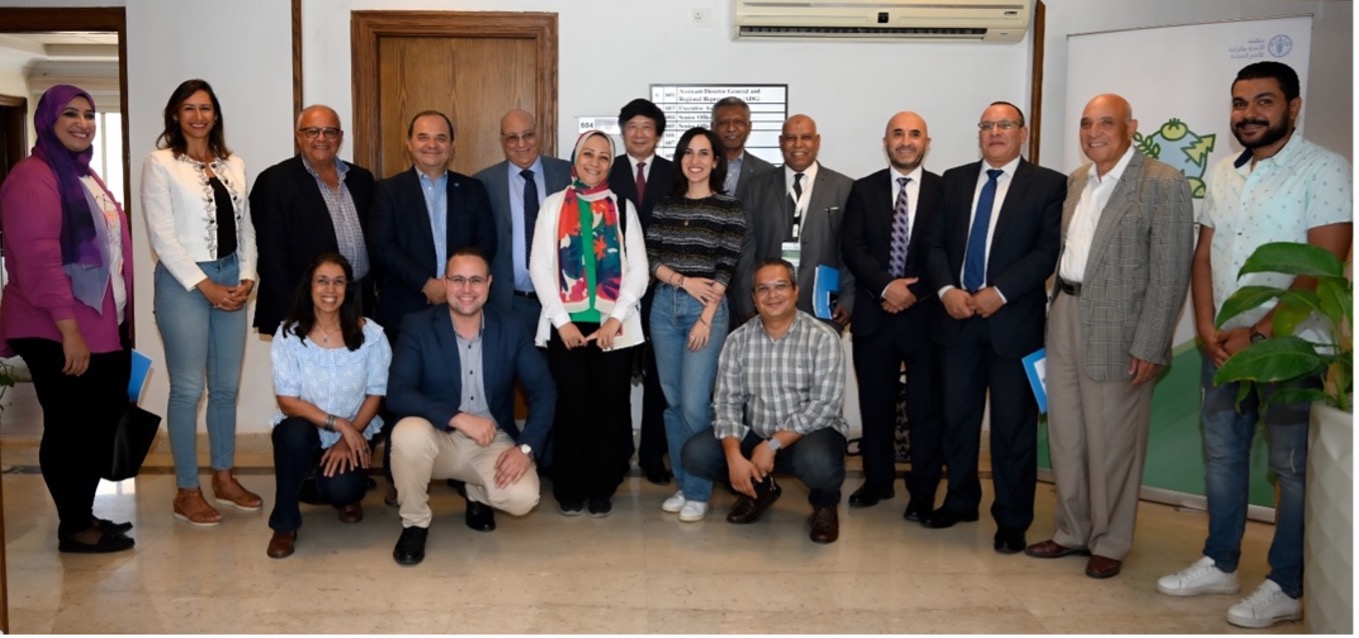News
Egypt Establishes National Task Force to Oversee the Implementation of the One Country One Priority Product Initiative

The first meeting of OCOP National Task Force in Egypt
©FAO/Ahmed Elsheemy
Cairo, Egypt 14 September 2023 – The commitment of Egypt to promote date palm as a Special Agricultural Product (SAP) received a significant boost with the establishment of the National Task Force (NTF) under the FAO One Country One Priority Product (OCOP) initiative. Following the successful regional launch for the implementation of the OCOP country projects in the Near East and North Africa, the NTF convened for its first meeting on 14 September 2023, effectively laying the groundwork for a well-coordinated and impactful implementation of the OCOP in Egypt. The NTF, led by Mr. Mohamed Abdel-Megeed, Chairman, Agricultural Pesticide Committee, Ministry of Agriculture and Land Reclamation of Egypt, and co-led by Mr. Nasredin Hag Elamin, FAO Country Representative in Egypt to build a strong coordination structure for the coordination of the OCOP initiative at the national level.
Mr. Jingyuan Xia, Executive Secretary of the OCOP Secretariat, shared key updates on the implementation of OCOP at the global level and appreciated the enthusiasm of the NTF team, which hosts the largest composition amongst the other OCOP demonstration countries. Mr. Hafiz Muminjanov, the OCOP Global Coordinator, provided a brief on the implementation of the projects under the OCOP initiative.
The function of the National Task Force
The primary mission of the NTF is to provide support and coordination for the OCOP activities in Egypt, aligning them with national priorities, the FAO Strategic Framework 2022-31, and the Sustainable Development Goals (SDGs). The NTF will be responsible for organizing, guiding, and overseeing the OCOP initiative, facilitating collaboration with a wide range of stakeholders, offering technical support, mobilizing resources, promoting market access for date palm as the SAP, and establishing an efficient internal management mechanism to supervise the OCOP implementation within the country.
The NTF's composition reflects a diverse representation, including senior managers from the Ministry of Agriculture and Land Reclamation and the Ministry of Trade and Industry. Additionally, the experts and researchers from the Central Laboratory for Date Palm Research and Development, the Agricultural Crops Export Council, and the FAO Country Office in Egypt will support the NTF as the official members.
Key outcomes of the meeting
After comprehensive deliberations, and real-time interpretations in English, French, and Arabic, the NTF’s composition was finalized, and the Terms of Reference were endorsed. This marked a significant milestone in advancing the OCOP initiative in Egypt.
The national stakeholders representing the government, research centers and the industry, including Mr. Khaled El-Haggan, Date Palm Committee Manager at the Agricultural Crops Export Council, Ministry of Trade and Industry, Mr. Ezz El-Din El-Abbassi, Manager of the Central Laboratory for Date Palm Research and Development and member of the Ministry of Agriculture and Land Reclamation, Mr. Amgad Elkady and Mohamed Elansary, FAO National Consultants, and Mr. Mohamed Ismail Gomaa, Technical Support Manager, Food and Agro-Industries Technology Center, Ministry of Trade and Industry shared the views and prospects of promoting the OCOP in Egypt.
 |
Mr Jingyuan Xia, Executive Secretary of the OCOP Secretariat, updated on the global implementation of the OCOP. ©FAO/Ahmed Elsheemy |
The meeting highlighted the NTF's potential to play a substantial role in promoting date palms as an exemplary SAP in Egypt and beyond, with prospects to extend its scope to other countries and products like mango. Acknowledging Egypt's pioneering role in developing the date palm value chain, participants emphasized the importance of the OCOP Secretariat’s role in providing technical support and fostering global and regional collaboration and resource mobilization.
Mr. Mohamed Abdel-Megeed and Mr. Nasredin Hag Elamin in their concluding remarks expressed satisfaction with the meeting's outcome and commended the global leadership of OCOP in regional and national activities. They emphasized that the NTF would fully commit to supporting date palm value chain development. In his closing remarks, Mr. Xia highlighted the NTF's broad representation across different sectors and stakeholders, underscoring its importance in ensuring the success of the initiative.
 |  |
NTF members actively engaged in the discussion. ©FAO/Ahmed Elsheemy | Group photo of the OCOP National Task Force in Egypt. ©FAO/Ahmed Elsheemy |
The OCOP approach to transforming agrifood systems
The OCOP initiative is closely aligned with FAO's 2022-31 Strategic Framework and seeks to promote inclusive, profitable, and environmentally sustainable agrifood systems by focusing on the sustainable development of SAP value chains. It centers its efforts on five main areas: increasing productivity and promoting healthy diets, reducing food loss and waste while protecting biodiversity, optimizing water and land utilization, minimizing chemical use in agriculture, and addressing climate change.
Egypt's active participation in OCOP reflects its commitment to promoting date palms as a significant SAP in the region. The launch of the OCOP NTF in the country marks a critical step in realizing these objectives and propelling Egypt's date palm industry to greater heights. As the NTF begins its work, it is expected to serve as a model for the other countries in the region that are looking to advance their SAP’s value chains and foster sustainable agricultural development.
